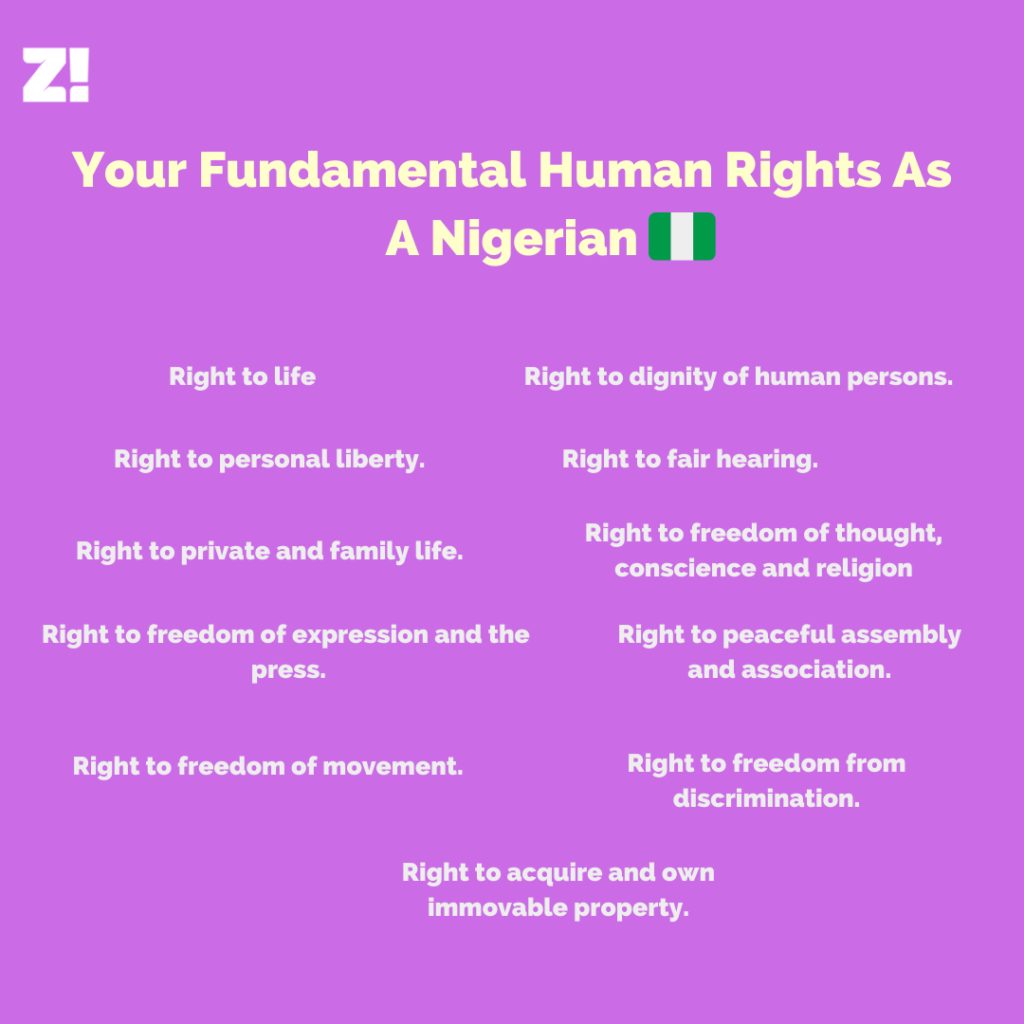On June 4, 2021, the Federal Ministry of Information and Culture announced through a Twitter thread that it had indefinitely suspended Twitter operations in Nigeria. The suspension came after Nigeria’s Minister of Information and Culture, Lai Mohammed, “announced the suspension in a statement issued in Abuja on Friday, citing the persistent use of the platform for activities that are capable of undermining Nigeria’s corporate existence.”
The censorship of Twitter by the Nigerian government has been termed by many as a blatant disregard of the constitutional provision of Fundamental Human Rights for Nigerians, an autocratic action in a democratic government, and something to be deeply worried about.
Here’s why:
The provision for the Fundamental Human Rights for Nigerians can be found in Chapter 4 of the Nigerian Constitution. Section 39, under this chapter, details our right to freedom of expression and the press, and Section 40, our right to peaceful assembly and association.
Freedom of expression means that every Nigerian is “entitled to freedom of expression, including freedom to hold opinions and to receive and impart ideas and information without interference.” By using Twitter to express our opinions, we are expressing our freedom of expression. No government should take that away from its citizens.
Section 40 states that “Every person shall be entitled to assemble freely and associate with other persons.” Nigerians socially gather on Twitter. Technology means that peaceful assembly and association don’t have to be physical. Nigerians are expressing their right to peaceful assembly by using Twitter. No government should take that away from its citizens.

“But what happens when these rights are misused by the citizens?”
There are cases where the government, in the best interest of the citizens and the country, temporarily override the fundamental human rights of the citizens.
Here’s an example: Section 41 of the constitution provides Nigerians with the right to freedom of movement. Last year, there were a series of government imposed lockdowns because of the Coronavirus pandemic. Another example is the death penalty: We have the right to life, but if we decide to kill, then there’s a sentence, which takes away our own right to life.
Does this mean that the government can decide to negate our rights whenever they want? The answer is no. Why?
Section 45: Restriction on and derogation from fundamental human rights.
Section 45 of the constitution states that our fundamental human rights are no longer “valid” if they’re against
- “The interest of defence, public safety, public order, public morality or public health; or
- The rights and freedom or other persons.”
In these situations, there are due processes to follow, based on the principle of checks and balances between the arms of government. Derogations go through due processes, such as judicial checks and court approvals.
So even if the Nigerian government wanted to infringe on our rights to expression, and peaceful assembly, by stating that our use of Twitter goes against public safety, public order, public morality, public health, or rights and freedom or other persons, they had to go through the judiciary – who are on a strike – and not just through the words of minister Lai Mohammed.




